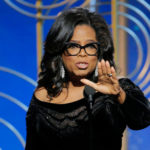By MICHAEL TARM
Associated Press
CHICAGO (AP) _ A federal agency has decided that football players at Northwestern University can create the first union of college athletes in the United States _ a stunning ruling that could revolutionize a college sports industry worth billions of dollars and have dramatic repercussions at schools across the country.
The case has stirred a national debate over the nature of lucrative college sports _ especially football, which is followed nearly as avidly as the professional National Football League. The question is whether student football players who help generate millions of dollars in revenue for their universities should be treated as employees.
On Wednesday, a regional director of the National Labor Relations Board decided the answer is yes. Peter Sung Ohr’s ruling means he agrees that football players Northwestern _ a member of the Big Ten conference of 12 universities with prestigious sports programs _ qualify as employees under federal law and therefore can legally unionize.
An employee is generally regarded by law as someone who receives compensation for a service and is under the direct control of managers. Players argued that their sports scholarships are compensation and coaches are their managers.
The decision comes at a time when the National Collegiate Athletics Association, which organizes the athletics programs of many universities in the U.S., has been under increasing scrutiny over its amateurism rules and is fighting a class-action federal lawsuit by former players seeking a cut of the billions of dollars earned from live broadcasts, memorabilia sales and video games. Other lawsuits allege the NCAA failed to protect players from debilitating head injuries.
Northwestern, which is in Illinois, argued that college athletes, as students, don’t fit in the same category as factory workers, truck drivers and other unionized workers. Immediately after the ruling, the school announced it plans to appeal to labor authorities in Washington, D.C.
Attorneys for the College Athletes Players Association, which would take the lead in organizing the Northwestern players, argued that college football is, for all practical purposes, a commercial enterprise that relies on players’ labor. That, they contend, makes the relationship of schools to players one of employers to employees.
Supporters of the union bid also argued that the university ultimately treats football as more important than academics for scholarship players. Ohr sided with the players on that issue.
“The record makes clear that the employer’s scholarship players are identified and recruited in the first instance because of their football prowess and not because of their academic achievement in high school,” Ohr wrote. He also noted that among the evidence presented by Northwestern, “no examples were provided of scholarship players being permitted to miss entire practices and/or games to attend their studies.”
The ruling also described how the life of a football player at Northwestern is far more regimented than that of a typical student, down to requirements about what they can and can’t eat and whether they can live off campus or purchase a car. At times, players put 50 or 60 hours a week into football, he added.
Alan Cubbage, Northwestern’s vice president for university relations, said in a statement that while the school respects “the NLRB process and the regional director’s opinion, we disagree with it.”
In a written statement, the NCAA also said it disagreed with the notion that student-athletes are employees.
“We frequently hear from student-athletes, across all sports, that they participate to enhance their overall college experience and for the love of their sport, not to be paid,” the NCAA said.
Scholarship players will vote within 30 days on whether to formally authorize the College Athletes Players Association, or CAPA, to represent them, according to former UCLA linebacker Ramogi Huma, the designated president of Northwestern’s would-be football players’ union.
The specific goals of CAPA which would take the lead in organizing the players, include guaranteeing coverage of sports-related medical expenses for current and former players, ensuring better procedures to reduce head injuries and potentially letting players pursue commercial sponsorships.
But critics have argued that giving college athletes employee status and allowing them to unionize could hurt college sports in numerous ways, including by raising the prospects of strikes by disgruntled players or lockouts by athletic departments.
For now, the push is to unionize athletes at private schools, such as Northwestern, because the federal labor agency does not have jurisdiction over public universities.
The outgoing quarterback for Northwestern’s Wildcats, Kain Colter, took a leading role in establishing CAPA. The United Steelworkers union has been footing the legal bills.
Colter, whose eligibility has been exhausted and who has entered the NFL draft, said nearly all of the 85 scholarship players on the Wildcats roster backed the union bid, though only he expressed his support publicly.
During the federal agency’s five days of hearings in February, Wildcats coach Pat Fitzgerald took the stand for union opponents, and his testimony sometimes was at odds with Colter’s.
An attorney representing the university, Alex Barbour, noted Northwestern has one of the highest graduation rates for college football players in the nation, around 97 percent. Barbour insisted, “Northwestern is not a football factory.”









